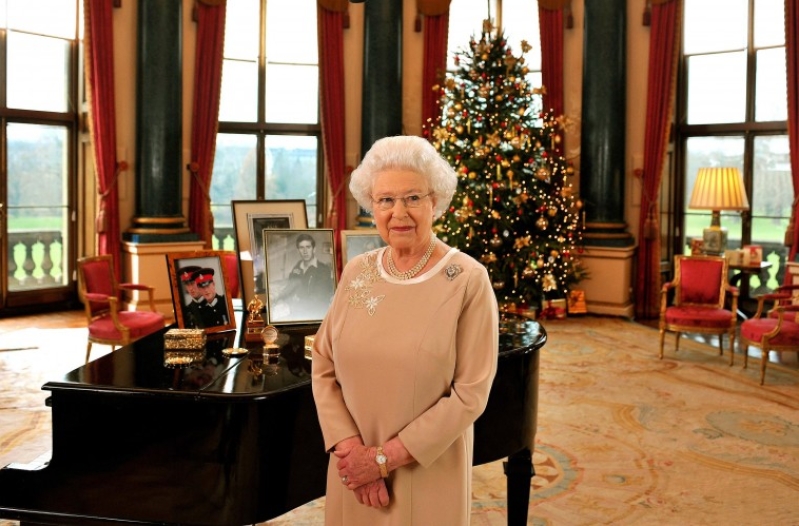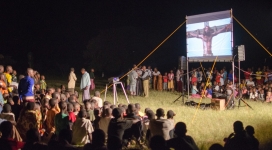
Both the Pope and Queen Elizabeth delivered a message of hope this Christmas, indirectly citing recent terrorist atrocities, particularly the perpetrators, ISIL. Queen Elizabeth used her annual Christmas address to ignite hope that the "darkness" in the world can prevail.
In her speech, the 89-year old monarch acknowledged that the world has dealt with several crises this year. For her, these "moments of darkness" should not be reasons to become hopeless. According to her, ""the Gospel of John contains a verse of great hope... 'Light shines in the darkness, and the darkness has not overcome it.'"
Not mentioning any specific attacks or terrorist groups, the Queen's message remains nonetheless clear that Christianity should and would not weaken because of these attacks. She reminded her audience that Christianity is not about "revenge or violence" but of loving one another.
The Queen also shared her vision of a more peaceful and yet colorful 2016. "Gathering around the tree gives us a chance to think about the year ahead - I am looking forward to a busy 2016, though I have been warned I may have 'Happy Birthday' sung to me more than once or twice."
The Queen concluded her speech by asserting that there is no better time than Christmas to be thankful for people who give hope to others. "Millions of people are lighting candles of hope in our world today," Queen Elizabeth said. "Christmas is a good time to be thankful for them and for all that bring light to our lives."
Queen Elizabeth's sentiments were first highlighted by the Pope on his delivery of his Christmas prayer. The Pope was more vocal with regard the attacks and the perpetrators, citing countries were well-known atrocities and conflicts are going on.
On his Christmas prayer, Pope engaged in the same narrative. The Pope prayed for the end of terrorism, which he described as "monstrous evil."
Speaking from the central balcony of St. Peter's Basilica, the Pope delivered the message of mercy and hope amid events of war, poverty, and extremist atrocities. The Pope offered his prayers as security securely guarded St. Peter's Square, in light of the Nov. 13 Paris Attacks.
In an indirect reference to ISIL, he said: "May the attention of the international community be unanimously directed to ending the atrocities which in those countries, as well as in Iraq, Libya, Yemen and sub-Saharan Africa, even now reap numerous victims, cause immense suffering and do not even spare the historical and cultural patrimony of entire peoples."
He also offered a prayer for those forced to leave Syria because of the continuous conflict there. He highlighted the role of the international community in halting the conflicts.
"We pray to the Lord that the agreement reached in the United Nations may succeed in halting as quickly as possible the clash of arms in Syria and in remedying the extremely grave humanitarian situation of its suffering people," he said.
Like Queen Elizabeth, the Pope reminded of his audience the message of Christianity in the middle of these troubling events. He emphasized the importance of God's mercy. "Only God's mercy can free humanity from the many forms of evil, at times monstrous evil, which selfishness spawns in our midst," he said.
In a related news of hope and mercy, The Independent reports that true to his image as a contemporary Church leader, the Pope once said that even non-believers are welcomed in heaven, as long as they do good and obey their conscience.
The Independent's source is a little known 2013 open letter by the Pope published in the Italian newspaper La Repubblica. Pope Francis allegedly wrote, ""The issue for those who do not believe in God is to obey their conscience. Sin, even for those who have no faith, exists when people disobey their conscience." The letter's authenticity, particularly its translation is being questioned.
Watch Pope's prayer below:







